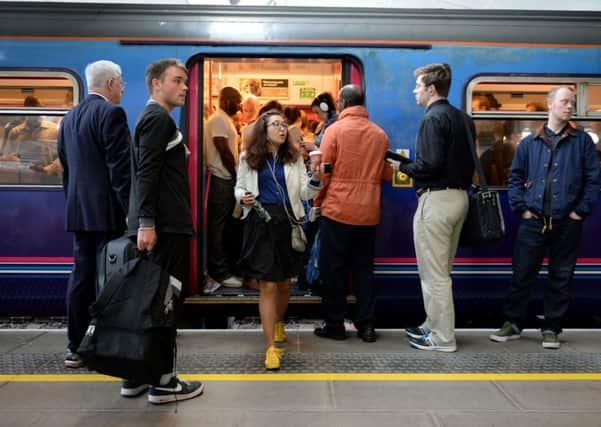Northern Rail at bottom of region’s passenger satisfaction league


The Office of Rail Regulation (ORR) said government rail funding in 2013/14 was just under £3.8 billion - eight per cent less than a year earlier and 16 per cent less than in 2010/11 - representing 28.5 per cent of the rail industry’s total income and was far less per passenger in England than in Scotland and Wales.
Passengers have contributed an increasing proportion of the rail industry’s income relative to taxpayers over the past four years, the ORR reported - up from 55.6 per cent to 61.5 per cent. Operators’ income from passengers in 2013/14 totalled £8.16bn - up 6.2 per cent on 2012/13.
Advertisement
Hide AdAdvertisement
Hide AdRichard Price, ORR chief executive, said: “There has been substantial growth in the use of the railways in the past four years. Passengers are increasingly the main funder of the railways, and must be central to developing plans for future services and investment.”
Rail Minister Claire Perry said the government was investing record amounts into the railways as part of its long-term economic plan and passenger fares were crucial in funding these improvements, which, she said, will bring more services, more seats and modern trains: “As we drive forward this huge investment programme, it is absolutely important that disruption to passengers is kept to a minimum. It is also important that we recognise passengers’ concerns about the cost of rail fares. This is why we have frozen them for the second year in a row.”
But, Manuel Cortes, leader of the TSSA rail union, said the figures reveal it is the “poor old passengers” who carry the real burden in the privatised rail industry, calling the situation a “scandal”.
“These (train) firms are getting a free ride while the passengers have to pay the highest fares in Europe,” Mr Cortes said.
Advertisement
Hide AdAdvertisement
Hide AdConsumer watchdog Which? said many passengers have not seen the benefits of pouring more and more money into railways. In a survey of train travellers, it found 29 per cent had suffered a delay on their last journey and three-quarters of those held up for more than an hour were not told they qualified for a full refund as a result.
Richard Lloyd, executive director of Which? said: “Long delays and consistently low levels of customer service are driving commuters to distraction. Passengers often have little or no choice as to the rail companies they travel with, so as ticket prices continue to rocket, more must be done to improve customers’ satisfaction and to inform people of their right to a refund as a result of delays.”
Martin Abrams, public transport campaigner for the Campaign for Better Transport, said: “The Which? survey paints a bleak picture of expensive fares, frequent delays, overcrowded, dirty trains and poor communication from train companies to passengers. Passengers need the train companies and Government to up their game.”
The survey involved 7,309 travellers based on journeys in the 12 months to November 2014. It found that 30 per cent of First Transpennine Express passengers suffered a delay on their last journey, Northern Rail (28), East Coast (23) and First Hull Trains (15). Northern Rail scored the worst customer satisfaction results of the region’s train operators, 49 per cent; compared to First Transpennine Express (53), East Coast (62) and First Hull Trains (69).